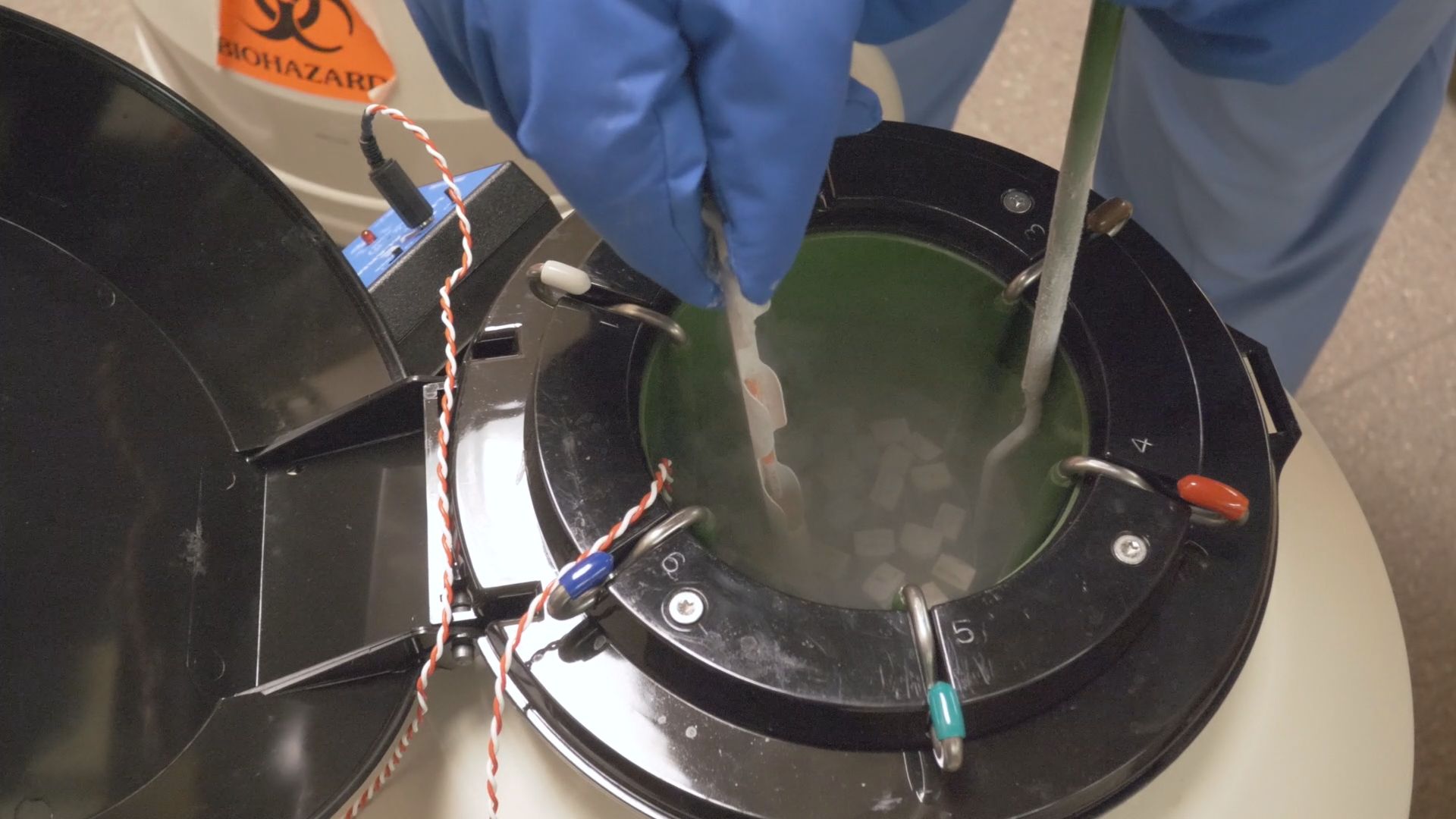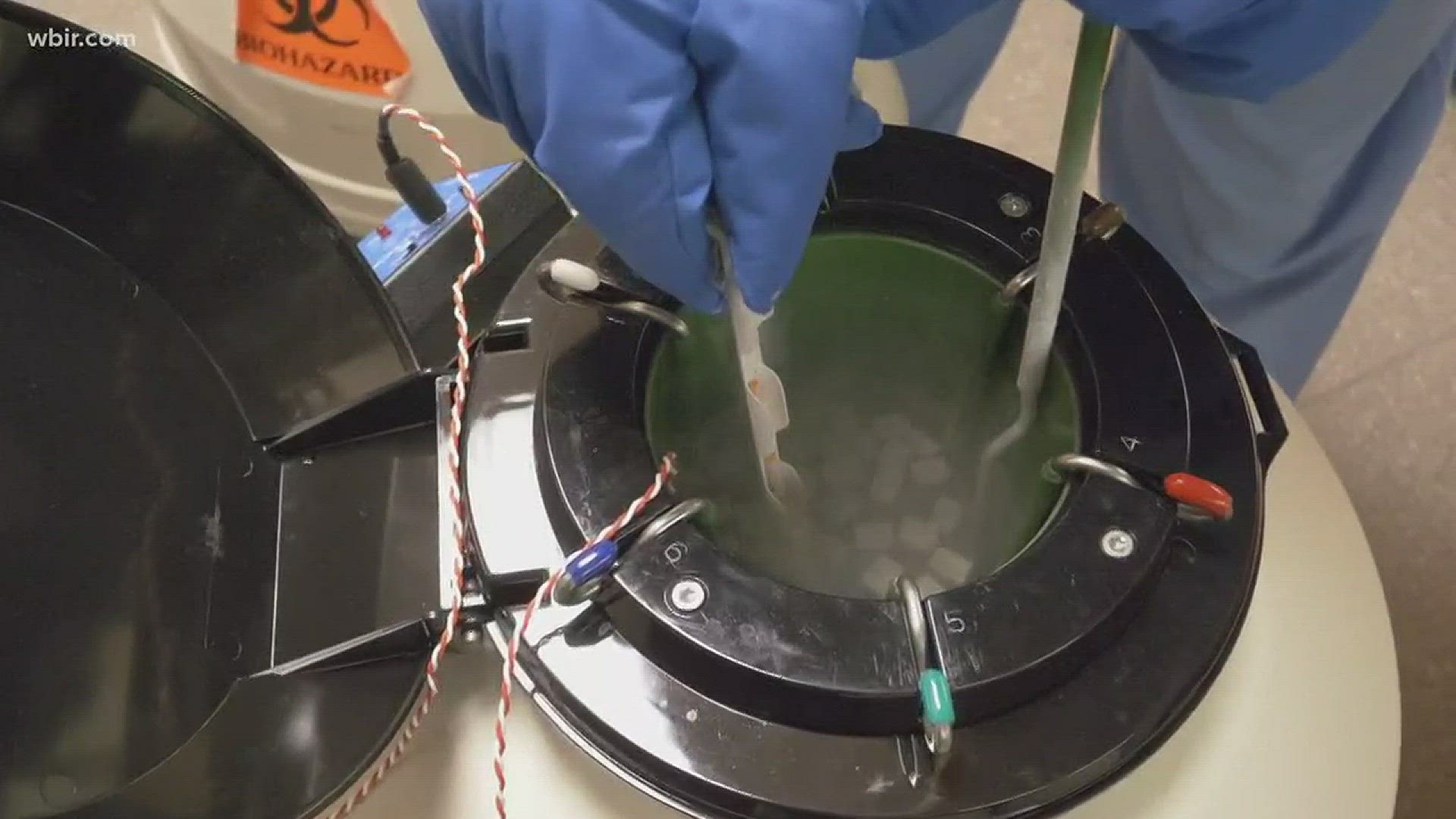Fertility experts in East Tennessee are putting an emphasis on safely storing embryos.
The effort comes after storage tank malfunctions at clinics in Ohio and California where the temperature in the tanks started to rise, slowly thawing the frozen samples.
At the Ohio clinic alone, some 2,100 eggs and embryos could be compromised.
The National Embryo Donation Center in Farragut said a malfunction like this is very rare.
Embryos and eggs have to be stored at a very cold -196 degrees Celsius in a tank cooled by liquid nitrogen.

It's extremely uncommon for that temperature to change on its own.
While there are always risks involved in using frozen embryos to get pregnant, most couples don't worry about their samples accidentally thawing.
Dr. Jeffrey Keenan, Medical Director at the National Embryo Donation Center, said his staff takes every step possible to avoid mishaps like that.
"We do a daily visual inspection of the exterior tank and the levels," he said. "We do a weekly measurement."
That's to make sure no liquid nitrogen is leaking out or warming up.
There's also an emergency alert system in place if something happens when no one is at the office.
"We have an electronic monitoring system that is coordinated with something called a sensaphone so that if the level goes low in a tank, an alarm will sound, that sensaphone dedicated phone will call one of us," Keenan said.
Even a small rise in temperature can negatively impact the embryos.
Keenan requires his patients to sign a consent form acknowledging that, while uncommon, embryos could be compromised because of equipment malfunction.
"It's important for couples going through this process to realize this is a really rare event," Keenan said. "This is very safe technology, that there are a lot of safeguards but that in any type of assisted reproduction there are just no guarantees."

